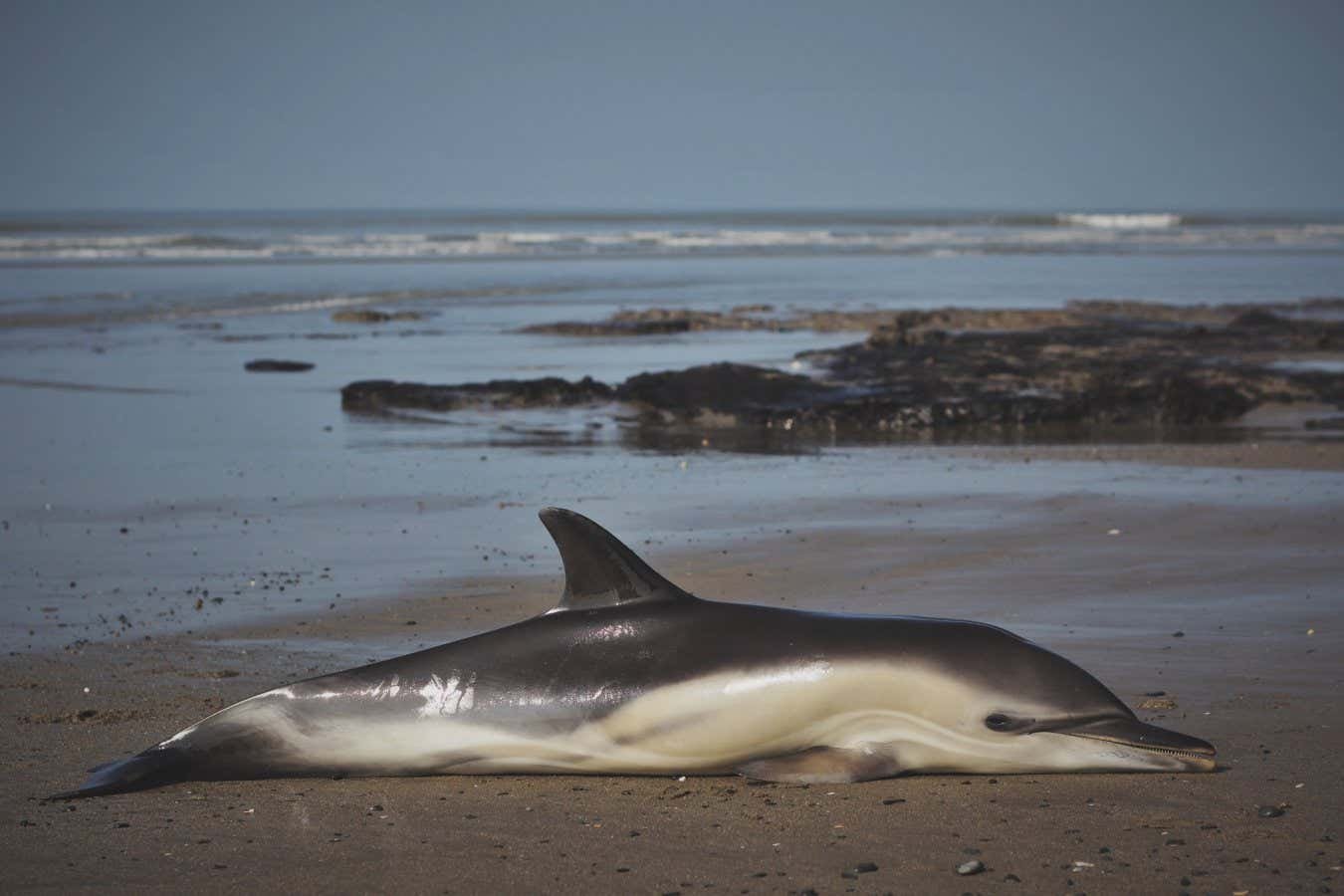An ordinary dolphin stranded on a British beach
Waves and Wellies photography
Dolphins in the sea surround Britain die from a combination of increased water temperatures and toxic chemicals that the United Kingdom forbade in the 1980s.
Polychlorinated biphenyls (PCBs) are a long-la-la-la-la-la-lashing of polluting scalp that was once widely used in industrial production. They interfere with animal reproduction and immun responsibility and cause cancer in humans.
In a new study, researchers found that higher levels of PCBs in the body and increased sea surface temperatures are linked to a greater mortality risk from infectious diseases of short -bald common dolphins (Delphinus Delphis), one first for marine mammals.
The sea is facing “a triple planetary crisis” – climate change, pollution and loss of biodiversity – but we often look at threats in isolation, says Rosie Williams at the Zoological Society of London.
Williams and her colleagues analyzed Post-Mortem data from 836 common dolphins stranded in the UK between 1990 and 2020 to assess the impact of these interconnected threats.
They found an increase of 1 mg PCB per day. Kg of blubber was associated with a 1.6 percent infectious disease – such as gastritis, enteritis, bacterial infection, enceptitis and pneumonia – became fatal. Each increase in sea surface temperature corresponds to a 14 percent increase in mortality risk.
According to the study, the threshold, where the PCBs blow concentrations have a significant effect on a dolphin’s risk of illness, 22 mg/kg, but the average concentration in samples was high, at 32.15 mg/kg.
Becuse dolphins are long -lasting, widely distributed surrounding the UK and high in the food chain, they are a good indicator species to show how can affect other animals as well.
“Their position at the top of the food means that toxins from their prey accumulate in their bacon and give a concentrated snapshot of pollutants in the sea – though unfortunately at the expense of their health,” says Thea Taylor, CEO of Sussex Dolphin Project.
Despite being banned in the UK in 1981 and internationally in 2001, the PCB is still washing out into the sea. “They still probably get into the environment through warehouses and are often a side product or a by -product of another manufacturing process,” says Williams.
It is very difficult to clean up PCBs. “Because they are so persistent, they are a nightmare to get rid of,” she says. “There is definitely not an easy solution.”
Some researchers are investigating excavation as a clean -up technical, while others are focused on improving the efficiency of the water treatment plant to remove lasting chemicals.
These findings indicate what can happen if no action has been taken to ban perfluoroalkyl and polyfluoro alchors (PFAs), another widespread group of so-called forever chemicals.
“Although we cannot reverse the pollution that has already happened, it is critical to prevent chemical input in the environment,” says Taylor.
Topics:
